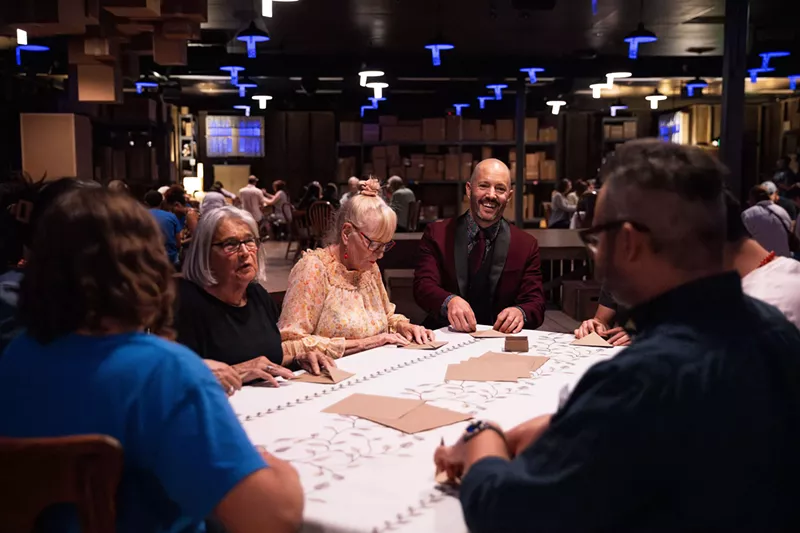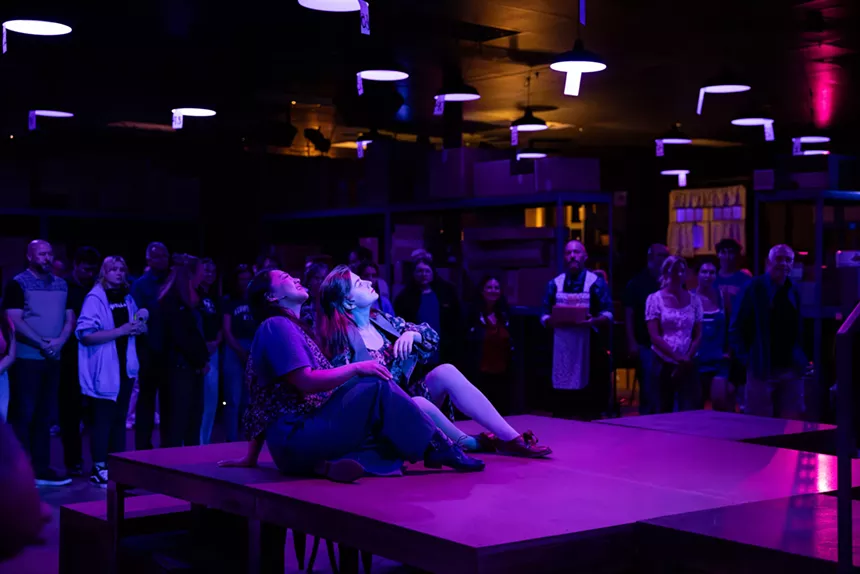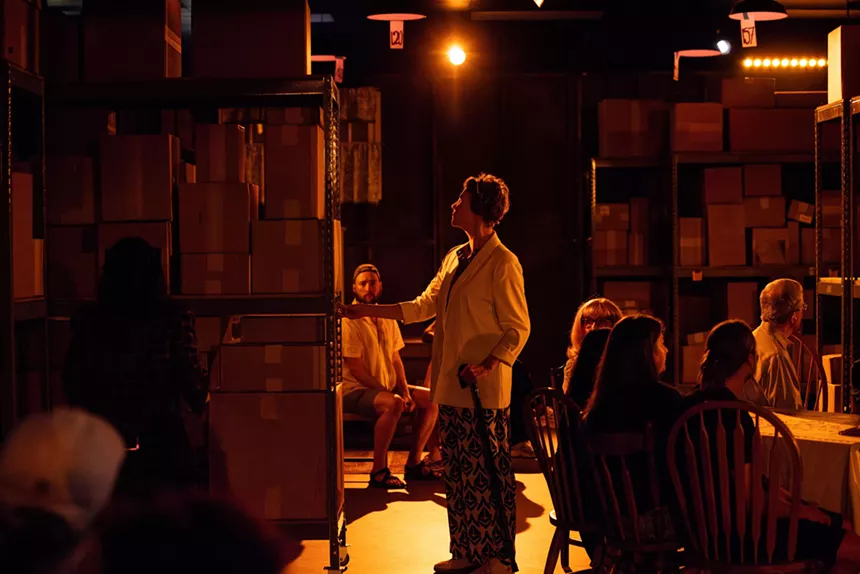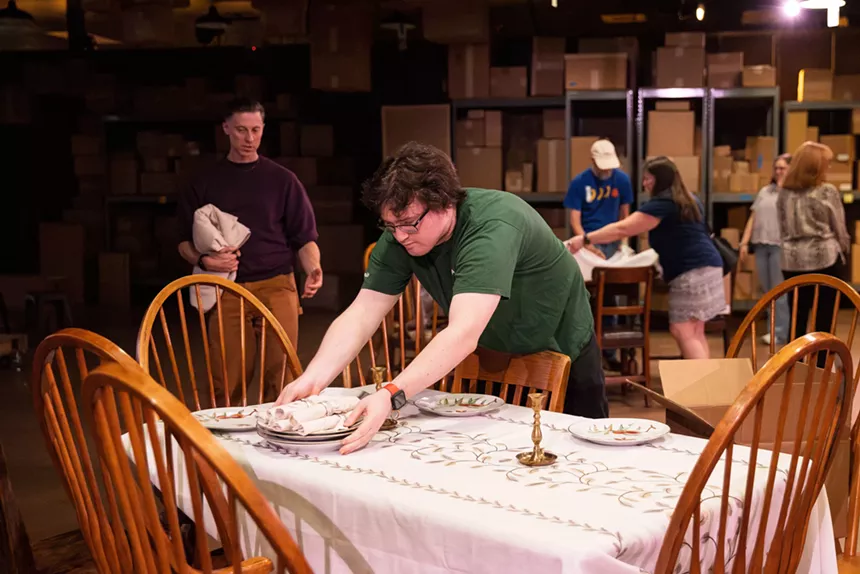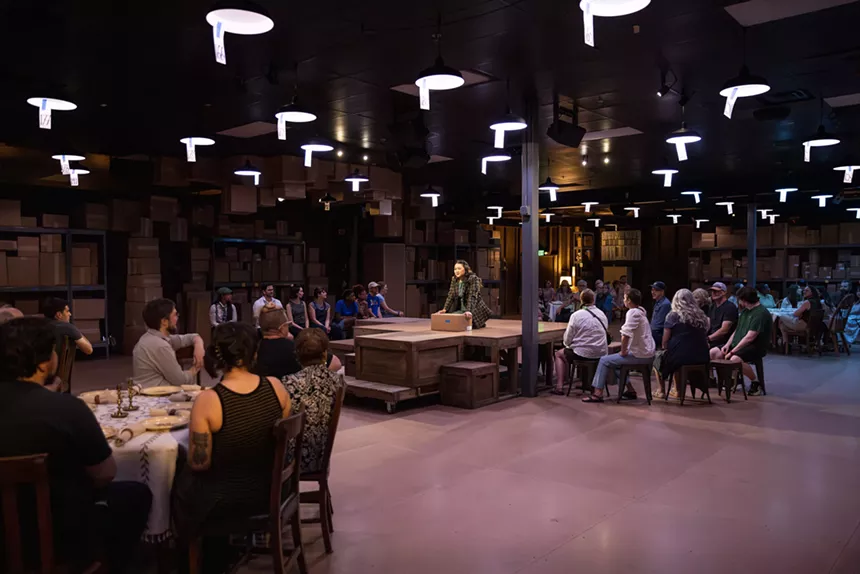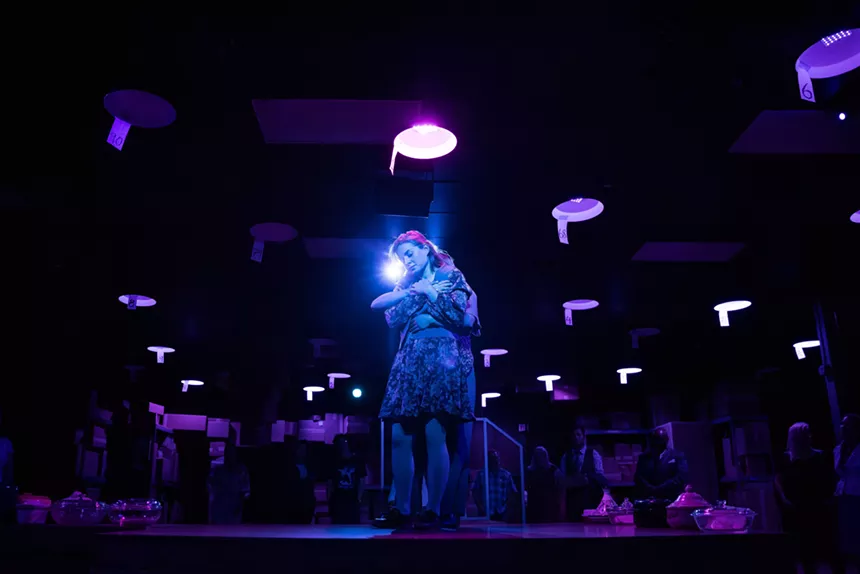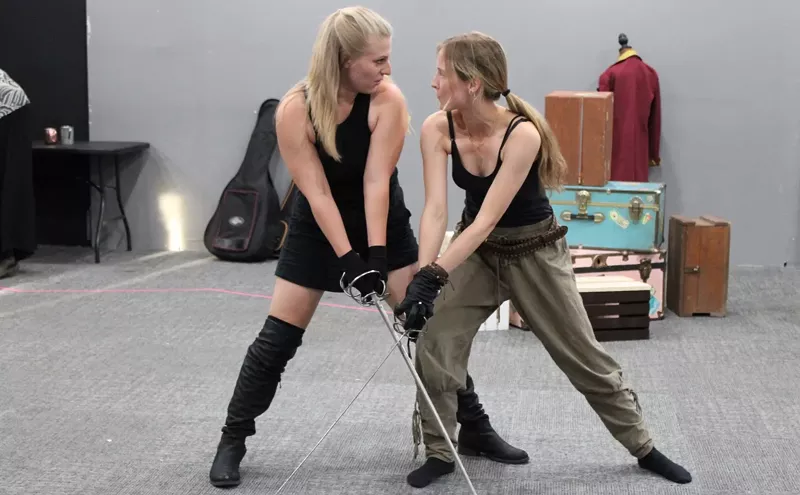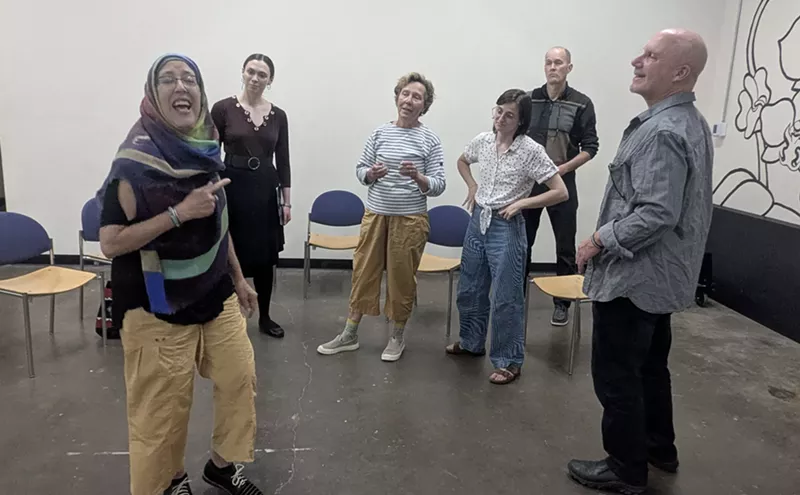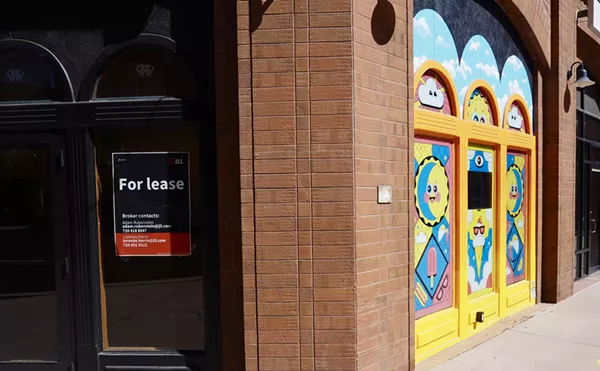When I first started covering Colorado’s immersive theater scene in the 2020s, there was one production people wouldn’t stop talking about: Sweet & Lucky.
Denver Center for the Performing Arts Off-Center produced it in 2016 with Brooklyn-based Third Rail Projects, and those who were there describe it as a watershed moment for immersive theater. With multiple rooms to explore, a swimming pool and a lushly detailed design, it was the show that convinced many artists and audiences that immersive theater could thrive in Denver.
Westword's theater critic at the time, Juliet Wittman, raved that Sweet & Lucky was "a brave, lovely, original adventure" that "is not a play, but an experience." Though I didn’t see the original, Sweet & Lucky's legacy looms large over the Denver immersive scene, so when Off-Center announced Sweet & Lucky: Echo, a new “companion piece” created again with Third Rail Projects co-artistic director Zach Morris, the hype was sky-high.
Tickets were over $40, many of the same creative team was returning and the production was pitched as another meditation on memory, love and loss. Given how much the world has changed since 2016, with everyone experiencing collective grief in the aftermath of the COVID-19 pandemic, and how far immersive theater has progressed in Denver, it seemed like an ideal time to revisit the material and team that helped kick off Denver's current immersive craze.
What emerged on opening night was underwhelming, a muted echo of the original’s ambition and impact. Despite its weighty subject matter, Sweet & Lucky: Echo is small, impersonal and frustratingly vague. It gestures toward universal truths about grief without ever grounding them in characters, stories or theatricality strong enough to hold an audience for two hours. Denver Center for the Performing Arts Off-Center produced it in 2016 with Brooklyn-based Third Rail Projects, and those who were there describe it as a watershed moment for immersive theater. With multiple rooms to explore, a swimming pool and a lushly detailed design, it was the show that convinced many artists and audiences that immersive theater could thrive in Denver.
Westword's theater critic at the time, Juliet Wittman, raved that Sweet & Lucky was "a brave, lovely, original adventure" that "is not a play, but an experience." Though I didn’t see the original, Sweet & Lucky's legacy looms large over the Denver immersive scene, so when Off-Center announced Sweet & Lucky: Echo, a new “companion piece” created again with Third Rail Projects co-artistic director Zach Morris, the hype was sky-high.
Tickets were over $40, many of the same creative team was returning and the production was pitched as another meditation on memory, love and loss. Given how much the world has changed since 2016, with everyone experiencing collective grief in the aftermath of the COVID-19 pandemic, and how far immersive theater has progressed in Denver, it seemed like an ideal time to revisit the material and team that helped kick off Denver's current immersive craze.
The evening begins in the lobby of Off-Center’s temporary warehouse space at 407 South Broadway (the former home of Monopoly Lifesized). The space is simple: a bar in the back, a shrine in the center with a quilt and some photos, lockers for you to put your stuff in during the experience and a podium where two ensemble members, Abner Genece and Maggie Whittum, introduce the evening. They start as themselves before sliding into character, which was the first sign the evening was going to be a muddled meditation.
Following a brief explanation that two members of our community have died, audience members are divided into two groups, signaled by the color of slips handed out at check-in, and ushered into a cavernous room filled with cardboard boxes. From there, the experience unfolds as a series of loosely connected activities: moving and then unpacking boxes to form a living room, folding paper origami, baking symbolic “recipes” and singing together.
These actions are framed as acts of remembrance for a deceased couple, but the characters themselves remain largely undefined. Names are fleeting, relationships unclear and the supposed loss is never made concrete, making the rituals feel hollow.
The dead couple's story hinges on a strained boat metaphor that drifts in and out of the piece without ever deepening their humanity. This decision keeps the characters at arm's length and reduces them to symbols rather than people to mourn.
The script only compounds the vagueness. Actors often repeat the same lines from different corners of the space, slightly staggered to create an “echo.” This device is explained early on, but its effect is inconsistent and never develops into anything meaningful. It also confines the performers to a strict rhythm, discouraging spontaneity or genuine interaction.
What could have been a space for touching human exchange is reduced to a tightly controlled loop of sentiment, with actors dripping in schmaltzy emotionality to try to compensate for how little the script gives them to work with.
Immersive theater thrives on specificity: clear roles for the audience, environments that feel alive and moments where performers respond to what participants bring into the room. Echo resists all of that. The actors pose rhetorical questions but rarely listen to responses. The boxes hold only generic props. Even when the audience is told their memories matter, they’re rarely woven into the story. The dead couple's story hinges on a strained boat metaphor that drifts in and out of the piece without ever deepening their humanity. This decision keeps the characters at arm's length and reduces them to symbols rather than people to mourn.
The script only compounds the vagueness. Actors often repeat the same lines from different corners of the space, slightly staggered to create an “echo.” This device is explained early on, but its effect is inconsistent and never develops into anything meaningful. It also confines the performers to a strict rhythm, discouraging spontaneity or genuine interaction.
What could have been a space for touching human exchange is reduced to a tightly controlled loop of sentiment, with actors dripping in schmaltzy emotionality to try to compensate for how little the script gives them to work with.
One of the only moments that felt alive came when a fellow audience member mentioned marigolds outside their childhood home and an actor wove that detail into the world. That fleeting moment underscored how much more powerful the show could have been had it been built on audience contributions rather than abstract platitudes about how grief and memory are always connected.
Unlike the original Sweet & Lucky, which, according to Wittman, transformed its RiNo venue "into a series of discrete, specially built spaces, each containing all kinds of surprises, small and large," Echo remains confined to a single flat room. Racks of boxes are rearranged, and sheets occasionally mark off corners, but the space never escapes its warehouse reality.
For a production presented by Denver’s biggest immersive producers, it feels no more technically ambitious than recent offerings by smaller companies like Audacious Immersive or The Catamounts — a surprising shortfall given the DCPA’s resources.
There are flashes where the performance threatens to deepen. A brief argument between the couple over decorating a Christmas tree suggests that memory is complicated and that grief involves tension between remembering only the good or also acknowledging the bad. But the scene passes without development, and the theme is never fully explored again.
Too often, the piece raises an interesting idea only to abandon it. That lack of follow-through makes the experience feel unsatisfying. The themes are undeniably resonant, but rather than illuminating grief, the show circles it vaguely. Instead of offering insight or catharsis, it feels manipulative: stirring painful memories without providing tools to process them. That may reflect the messy reality of mourning, but it makes for an inert evening of theater.
What makes this doubly frustrating is that the desire to build community is clearly present. When we were asked to share recipes with strangers, I had a lovely conversation with the person next to me, Lisa, about her pressure cooker macaroni dish. I shared my dad’s sauce recipe. That exchange was touching, but the show immediately moved on, asking us to drop the cards in a tin without integrating our stories into the performance.
The universal is reached through the specific. Echo tries to start universal and ends up with nothing.
Off-Center and Third Rail Projects have assembled an undeniably talented ensemble, including fifteen local actors plus several returning performers from the original, scenic designer Lisa M. Orzolek, costume designer Meghan Anderson Doyle, lighting designer Charles R. MacLeod and sound designer/composer Sean Hagerty. Yet with all this talent, the piece feels muffled, repetitive and oddly repressed. It circles the same vague sentiment — memory and loss are connected — without dramatizing what that means for either its characters or its audience.
At $40 a ticket, Sweet & Lucky: Echo is hard to recommend to anyone but the most devoted immersive completists. The production runs for nearly two hours, but its sluggish pace and long stretches of dead air make it feel even longer. For all its pedigree and ambition, the piece leaves audiences staring at cardboard boxes and waiting for meaning that never arrives.
Echo mistakes abstraction for depth, reducing grief to a hollow ritual that goes through the motions without ever grappling with its weight. The result is a lifeless experience that offers the trappings of immersion but none of its power.
Sweet & Lucky: Echo runs through Sunday, October 5, at DCPA Off-Center at Broadway Park, 407 South Broadway. Learn more at denvercenter.org.

